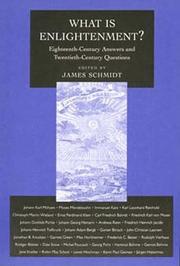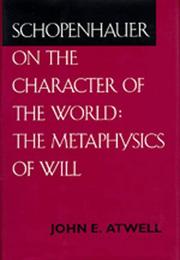| Listing 1 - 4 of 4 |
Sort by
|
Book
ISBN: 9783866441866 Year: 2007 Publisher: Karlsruhe KIT Scientific Publishing
Abstract | Keywords | Export | Availability | Bookmark
 Loading...
Loading...Choose an application
- Reference Manager
- EndNote
- RefWorks (Direct export to RefWorks)
Die Arbeit stellt die Hauptlinien der im 20. Jahrhundert in West- und Osteuropa geführten Totalitarismus-Debatten dar, um die besonderen Merkmale von Cassirers Auseinandersetzung mit demselben Phänomen des Totalitarismus zu zeigen. Der Autor konzentriert sich auf Cassirers Kulturphilosophie und politischer Philosophie im Verhältnis zu den dargestellten Debatten. So wird geklärt, welchen Gewinn Cassirers kulturanthropologisch angelegte Deutung totalitärer Herrschaft aus heutiger Sicht abwirft.
Political science --- Civilization --- Totalitarianism. --- Political Science --- Law, Politics & Government --- Political Science Theory --- Philosophy. --- Cassirer, Ernst, --- Criticism and interpretation. --- Totalitarian state --- Authoritarianism --- Collectivism --- Despotism --- Dictatorship --- Fascism --- National socialism --- Philosophy and civilization --- Political philosophy --- cultural philosophy --- political science --- politkwissenschaft --- herrschaftssysteme --- kulturtheorie --- german philosopher --- totalitarianism --- cultural theory --- totalitarismus --- Öffentlichkeitsarbeit --- Reichsmark --- Saarländischer Rundfunk --- Schutzstaffel --- Sozialdemokratische Partei der Schweiz --- Space Shuttle --- Vereinte Nationen

ISBN: 0520916891 0585034001 9780520916890 9780585034003 9780520202252 0520202252 9780520202269 0520202260 0520202252 0520202260 Year: 1996 Publisher: Berkeley, California : University of California Press,
Abstract | Keywords | Export | Availability | Bookmark
 Loading...
Loading...Choose an application
- Reference Manager
- EndNote
- RefWorks (Direct export to RefWorks)
This collection contains the first English translations of a group of important eighteenth-century German essays that address the question, "What is Enlightenment?" The book also includes newly translated and newly written interpretive essays by leading historians and philosophers, which examine the origins of eighteenth-century debate on Enlightenment and explore its significance for the present.In recent years, critics from across the political and philosophical spectrum have condemned the Enlightenment for its complicity with any number of present-day social and cultural maladies. It has rarely been noticed, however, that at the end of the Enlightenment, German thinkers had already begun a scrutiny of their age so wide-ranging that there are few subsequent criticisms that had not been considered by the close of the eighteenth century. Among the concerns these essays address are the importance of freedom of expression, the relationship between faith and reason, and the responsibility of the Enlightenment for revolutions.Included are translations of works by such well-known figures as Immanuel Kant, Moses Mendelssohn, Johann Gottlieb Fichte, and Johann Georg Hamann, as well as essays by thinkers whose work is virtually unknown to American readers. These eighteenth-century texts are set against interpretive essays by such major twentieth-century figures as Max Horkheimer, Jürgen Habermas, and Michel Foucault.
Enlightenment. --- Intellectual life --- Cultural life --- Culture --- Aufklärung --- Eighteenth century --- Philosophy, Modern --- Rationalism --- History --- 18th century. --- academic. --- criticism. --- culture. --- english translations. --- enlightenment. --- essay anthology. --- essay collection. --- faith. --- freedom of expression. --- german essay. --- german language. --- german philosopher. --- german philosophy. --- germany. --- historian. --- historical. --- immanuel kant. --- johann gottlieb fichte. --- michel foucault. --- modern world. --- moses mendelssohn. --- philosopher. --- philosophy. --- revolution. --- scholarly. --- translations. --- world history.
Book
ISBN: 2821877552 386644186X Year: 2007 Publisher: Karlsruhe KIT Scientific Publishing
Abstract | Keywords | Export | Availability | Bookmark
 Loading...
Loading...Choose an application
- Reference Manager
- EndNote
- RefWorks (Direct export to RefWorks)
Die Arbeit stellt die Hauptlinien der im 20. Jahrhundert in West- und Osteuropa geführten Totalitarismus-Debatten dar, um die besonderen Merkmale von Cassirers Auseinandersetzung mit demselben Phänomen des Totalitarismus zu zeigen. Der Autor konzentriert sich auf Cassirers Kulturphilosophie und politischer Philosophie im Verhältnis zu den dargestellten Debatten. So wird geklärt, welchen Gewinn Cassirers kulturanthropologisch angelegte Deutung totalitärer Herrschaft aus heutiger Sicht abwirft.
Political science --- Civilization --- Totalitarianism. --- Political Science --- Law, Politics & Government --- Political Science Theory --- cultural philosophy --- political science --- politkwissenschaft --- herrschaftssysteme --- kulturtheorie --- german philosopher --- totalitarianism --- cultural theory --- totalitarismus --- Öffentlichkeitsarbeit --- Reichsmark --- Saarländischer Rundfunk --- Schutzstaffel --- Sozialdemokratische Partei der Schweiz --- Space Shuttle --- Vereinte Nationen --- Philosophy. --- Cassirer, Ernst, --- Criticism and interpretation.

ISBN: 0520915151 0585221448 9780520915152 9780585221441 0520087704 Year: 1995 Publisher: Berkeley University of California Press
Abstract | Keywords | Export | Availability | Bookmark
 Loading...
Loading...Choose an application
- Reference Manager
- EndNote
- RefWorks (Direct export to RefWorks)
The most extensive English-language study of Schopenhauer's metaphysics of the will yet published, this book represents a major contribution to Schopenhauer scholarship. Here, John E. Atwell critically but sympathetically examines the philosopher's main work, The World as Will and Representation, demonstrating that the philosophical system it puts forth does constitute a consistent whole. The author holds that this system is centered on a single thought, "The world is self-knowledge of the will." He then traces this unifying concept through the four books of The World as Will and Representation, and, in the process, dissolves the work's alleged inconsistencies.
Will. --- Will --- Philosophy --- Philosophy & Religion --- Cetanā --- Conation --- Volition --- Ethics --- Psychology --- Self --- Schopenhauer, Arthur, --- Shūpinhawar, Artūr, --- Шопенгауэр, Артур, --- Shopengauėr, Artur, --- Shu-pen-hua, --- Sopenaouer, --- Schopenhauer, Arturo, --- Schopenhauer, A. --- Schopenhauer, Artur, --- Шопенгауер, Артур, --- Shūpinhāvir, Ārtūr, --- Suʼu-pun-her, --- שאפענהויער, ארטור --- שאפענהויער, ארטור, --- שופנהאואר, ארתור, --- שופנהאואר, --- שופנהואר, ארתור --- شوپنهاور، آرتور --- شوپنهاور، أرثر --- شوپنهور، أرثر --- 叔本华, --- 叔本華, --- 19th century german philosophy. --- abstract concepts. --- aesthetics. --- alleged inconsistencies. --- arthur schopenhauer. --- asceticism. --- atheistic metaphysical system. --- being. --- eastern thought. --- epistemology. --- ethical system. --- ethics. --- existence. --- german philosopher. --- identity. --- knowing. --- metaphysical will. --- ontology. --- phenomenal world. --- philosophical pessimism. --- philosophy. --- principle of things. --- representation. --- self knowledge. --- space. --- the world as will and representation. --- time. --- transcendental idealism. --- translated work. --- world as appearance.
| Listing 1 - 4 of 4 |
Sort by
|

 Search
Search Feedback
Feedback About UniCat
About UniCat  Help
Help News
News